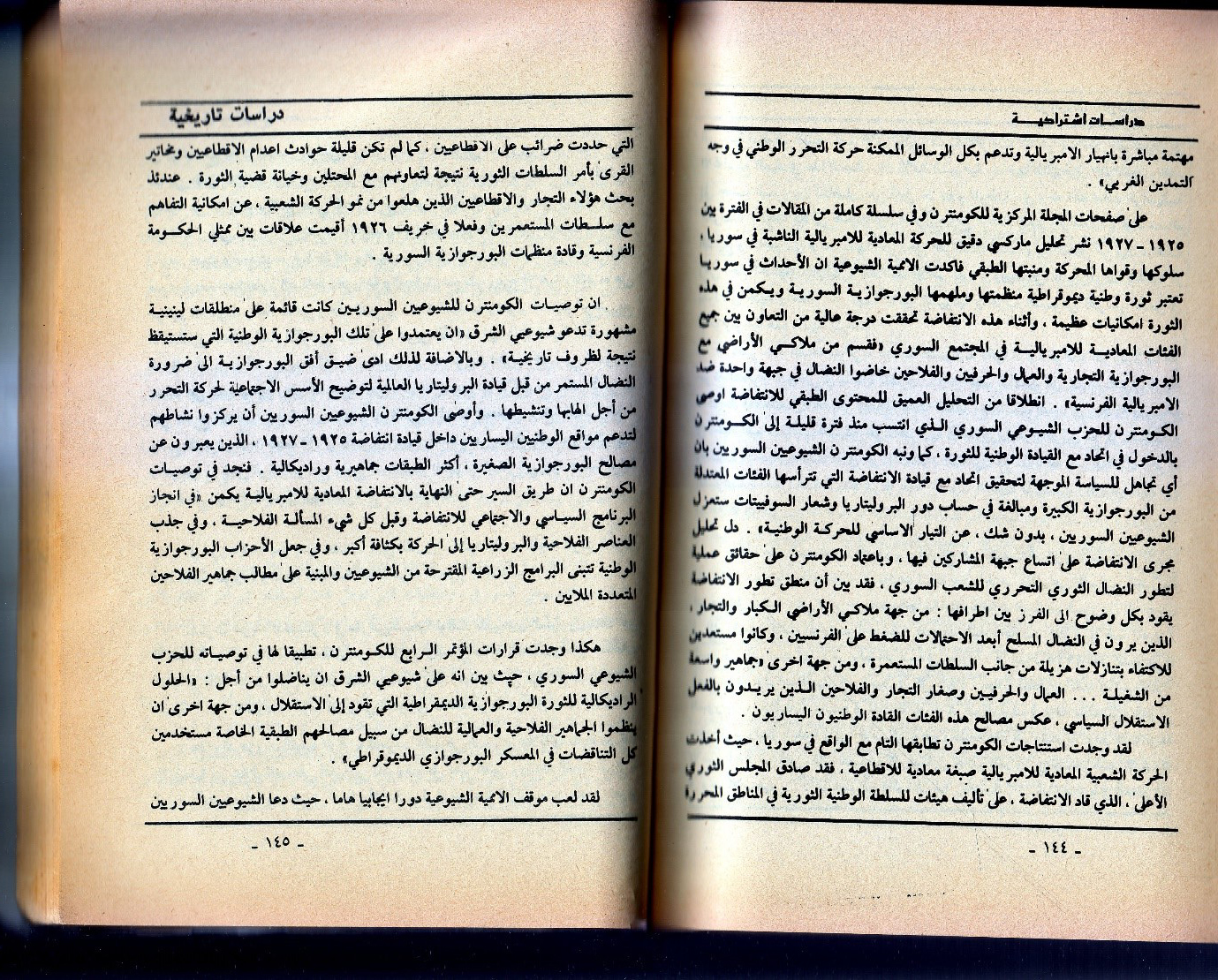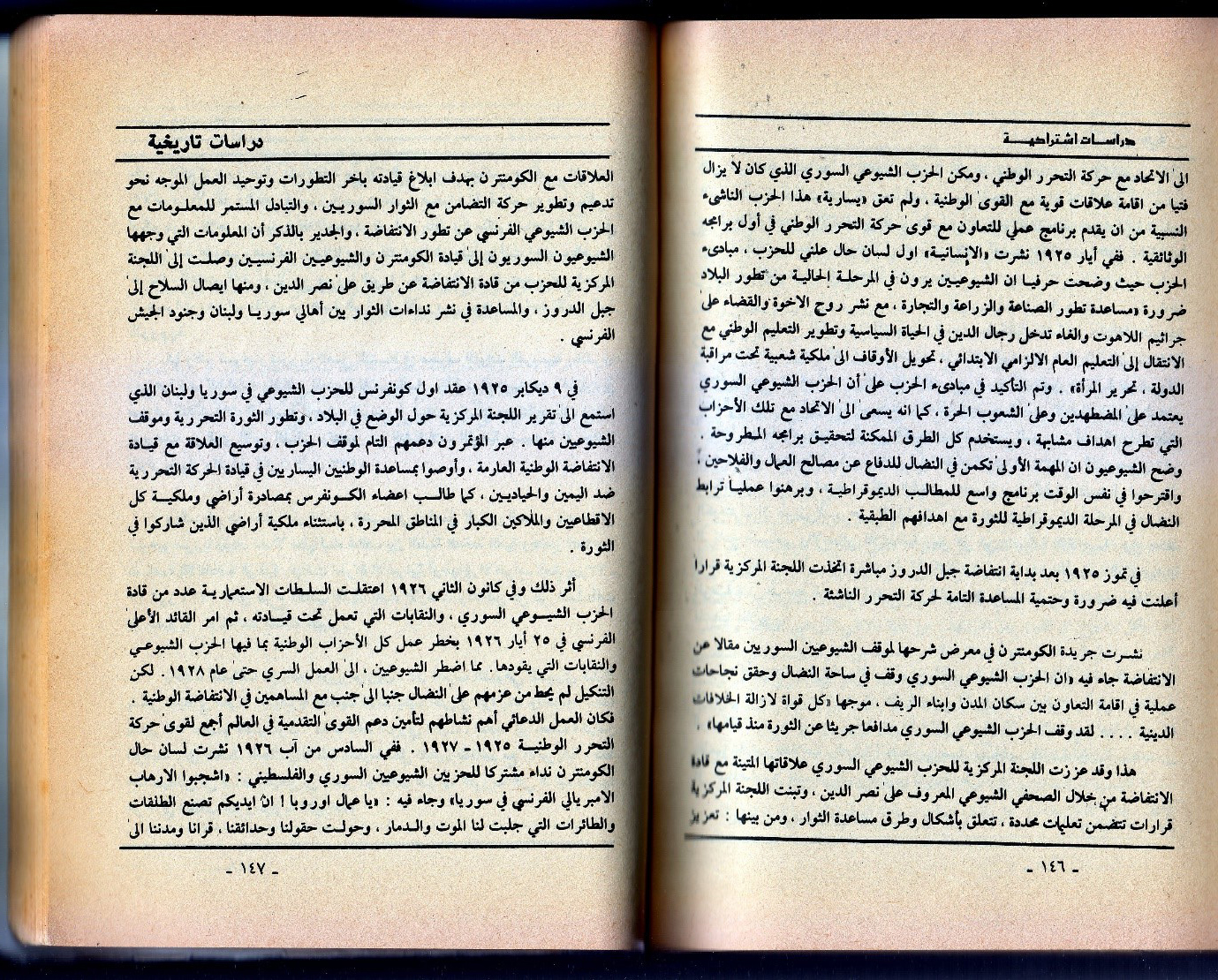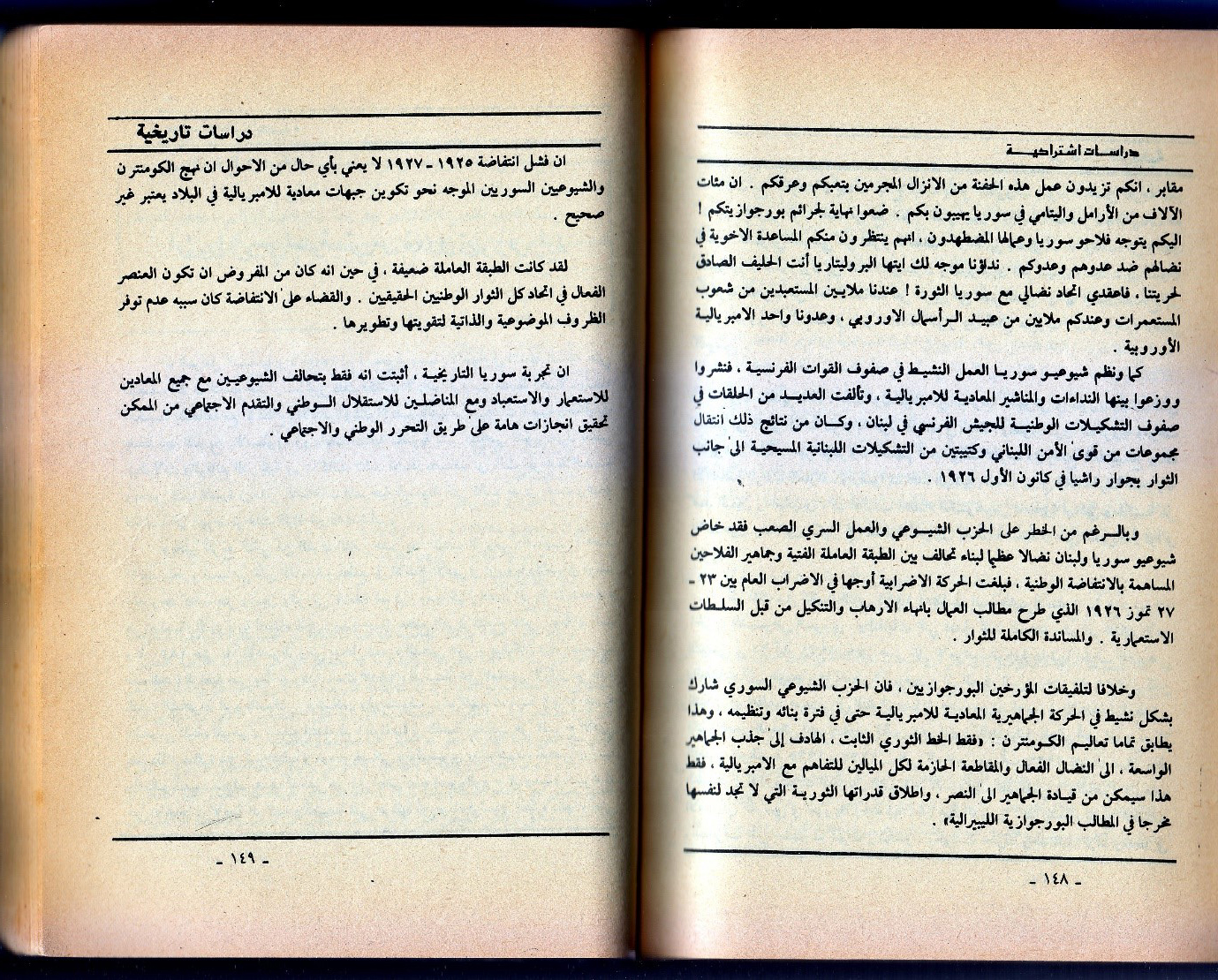- News & Activities
- Posted
Khaled Al-Roushd and «Journey Through Distortion of Memory»
In the past two weeks, Khaled Al-Roushd, the author and presenter of «Journey Through Memory» program in Russia Today (Arabic), presented two new episodes of his program, the first one was entitled «Bolsheviks and the question of supporting the Great Syrian Revolution» while the second episode touched on the relationship between the Comintern and the Syrian Communist Party.
In the two episodes, Al-Rushd provided new concrete evidence that his program is closer to a distortion of memory than a journey through it: starting from the guest of his choice to talk about the subject, the researcher Grigory Kosach, who relied – in the two episodes – on his own readings and interpretations of the Comintern's documents; to the method of adapting the program, which ignored several reliable references and sources that are still available and not difficult to be obtained; and up to the intervention of the presenter himself in the subject of the episode posing his «personal opinion» in an attempt to control the course of the talk so that to reach specific results.
While this article is not in a position to respond to all the details of the program, which will be done later, we will initially consider two ideas:
The first is that the program in its first episode came to the conclusion that the Comintern did not support the Great Syrian Revolution and that «if the Comintern wanted to support it, it could have done that». However, this is a pure slander, not only against the Comintern, not only against the Syrian Communists, not only against all the sources and references that confirm the opposite, but even against the previous writings of the very guest of the same episode, who wrote in 1985: «The heroic resistance of the Syrian revolutionaries received solidarity and warm support from the Comintern. The Comintern pursued a principled and consistent policy towards the heroic struggle of the Syrian revolutionaries. The Comintern does not stop stigmatizing the actions of French imperialism that violated the principle of self-determination of nations, but the Comintern calls for a violent struggle against imperialism» (Source: Dirasat Ishtirakia [Socialist Studies] - Issue No. 12, 1985).
The second idea is that the program carried out non-innocent attempts to interpret some of the organizational issues in the Syrian Communist Party a narrowly sectarian interpretation, and those who watch the second episode will face no effort to conclude that the episode since its very preparation was intended to be so, because the one who made the episode's title "Why did communist ideas spread among nationalist and religious minorities in particular?", is someone fully aware of what he was doing, and it cannot be said that the course of the episode was what spontaneously led to this sectarian analysis, which ignored the class causes associated with feudal characteristics and its particular complexities in the Syrian society at the time.
The standing at historic milestones of such a high degree of national importance, requires a high level of responsibility and accuracy. Unfortunately, the program and its presenter did not leave an opportunity to say that they had fallen unconsciously in distorting the Syrian history, as it is clear that the outcome of the program had been already prepared and pre-conceived in advance. This opens the door to several questions regarding the timing of such a position, and its intended benefit, and regarding possibly the connections of some of the station's staff.
Kassioun Editorial Board






